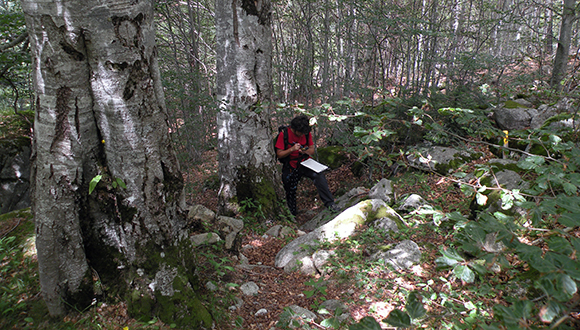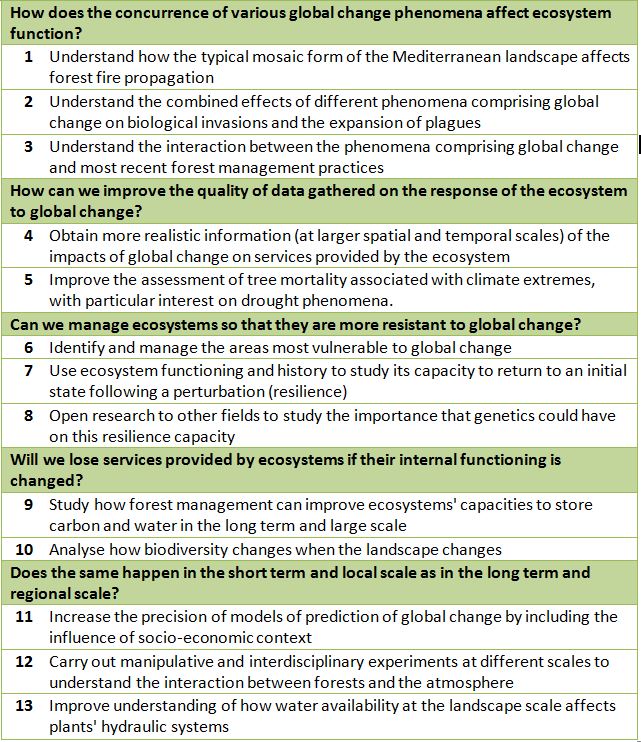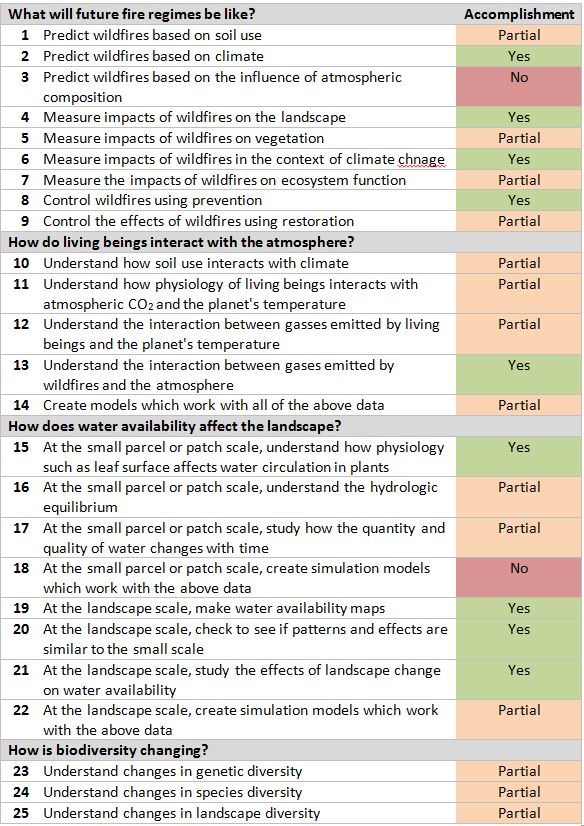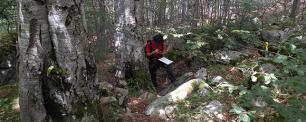Scientists identify the 13 most important research challenges to face global change in the Mediterranean region
Scientists consider it key to understand why droughts kill so many trees and the influence of local forest histories on tree mortality. They also warn that we know very little about the joined effects of different disturbances on each ecosystem, and highlight the necessity to plan research projects covering more time and space.

A multidisciplinary team of 28 researchers (of which 15 were from CREAF) has evaluated scientific progress of the last 16 years in the study of global change in terrestrial Mediterranean ecosystems, and has identified which should be immediate research priorities to make our ecosystems more resistant to the negative effects of this phenomenon.
In the article published in the journal Global Ecology and Biogeography, the authors arrive to the conclusion that science is faced with thirteen challenges and three fundamental considerations which need to be taken into account.
It is no longer sufficient to study different modifications which we provoke in ecosystems (climate change, changes in forest fire regimes, biodiversity loss, etc.) as if there were closed boxes.
It is instead necessary invest effort in "understanding how each of these boxes interacts with other boxes," says Enrique Doblas, CREAF researcher. He poses an example: "drought can provoke soil erosion, but the erosion which we are finding cannot be explained if we don't add to this drought all the changes in land use of the last 50 or 60 years."
Second, data gathered on a small scale often generate too much error when we try to use them to predict the effects of global change on a large scale. To deal with this problem, the authors of the article propose improving data exchange networks between researchers, and planning of long-term experiments at the regional or even global scale.
Thirdly, the article insists on the importance of local history of the ecosystem on how it is capable of responding to global change, and especially the ever-increasing effect of droughts. "In the same was that you don't recover from an infection the same way the first or second time that you have it, two ecosystems can seem identical but really not be so in any way due to their personal histories," says Doblas.
The following table shows the list of the 13 scientific challenges organized into umbrella categories of five predominant questions:

13 new challenges which substitute 25 challenges proposed by Sandra Lavorel in 1998
In order to identify these 13 challenges the researchers did not begin from zero; instead, they analysed the degree of satisfaction of challenges posed 16 years ago in a similar article, published in the same journal by the scientist Sandra Lavorel. Of the 25 challenges posed in 1998, nine have been successfully achieved, and only two remain unanswered. The remaining 14 (the majority) have only been answered in part (see following table):

The authors wrote the article in the context of the project MONTES-Consolider (CSD2008-00040), financed by the Spanish Ministry of Economy and Competitively. Participating writers were from CREAF, the Autonomous University of Barcelona, the University of Granada, the Centre Tecnològic i Forestal de Catalunya (CTFC), the Museum of Natural Sciences of the Spanish Council for Scientific Research (CSIC), The University of Castilla-La Mancha, the Center for Mediterranean Environmental Studies (CEAM), the University Rey Juan Carlos I, the University of Macquarie (Australia), the Institut de Diagnosi Ambiental i Estudis de l’Aigua (CSIC), and the University Carlos III de Madrid.
Article:
Doblas-Miranda, E., Martínez-Vilalta, J., Lloret, F., Álvarez, A., Ávila, A., Bonet, F. J., Brotons, L., Castro, J., Curiel Yuste, J., Díaz, M., Ferrandis, P., García-Hurtado, E., Iriondo, J. M., Keenan, T. F., Latron, J., Llusià, J., Loepfe, L., Mayol, M., Moré, G., Moya, D., Peñuelas, J., Pons, X., Poyatos, R., Sardans, J., Sus, O., Vallejo, V. R., Vayreda, J. and Retana, J. (2015), Reassessing global change research priorities in mediterranean terrestrial ecosystems: how far have we come and where do we go from here?. Global Ecology and Biogeography, 24: 25–43. doi: 10.1111/geb.12224







